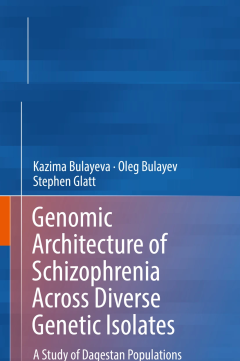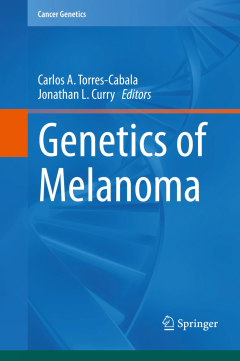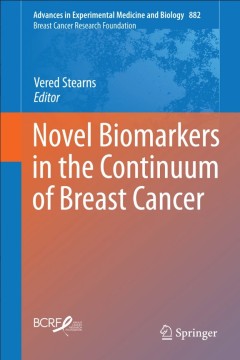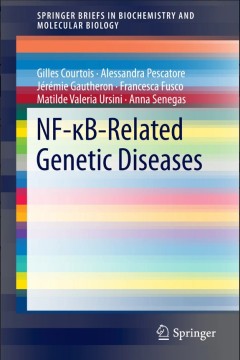Filter by

Epigenetic Mechanisms in Cellular Reprogramming
The ability of a single genome to give rise to hundreds of functionally distinct cell type programs is in itself remarkable. Pioneering studies over the past few decades have demonstrated that this plasticity is retained throughout development, a phenomenon of epigenetic programming and reprogramming that remains one of the most fascinating areas of modern biology, with major relevance to human…
- Edition
- -
- ISBN/ISSN
- 978-3-642-31974-7
- Collation
- 1 b/w illustrations, 19 illustrations in colour
- Series Title
- -
- Call Number
- -

Epigenetics - A Different Way of Looking at Genetics
This book presents epigenetics research as a new way of looking at genetics. Topics range from basic epigenetics mechanisms to development of cells and organisms and the biological basis of diseases. In addition the book focuses on immunology and the role of viruses in epigenetics. The last part of the book highlights proteins and peptides as epigenetic modulators.
- Edition
- -
- ISBN/ISSN
- 978-3-319-27186-6
- Collation
- 32 b/w illustrations, 9 illustrations in colour
- Series Title
- -
- Call Number
- -

Genomic Architecture of Schizophrenia Across Diverse Genetic Isolates
This book presents a long-term study in genetic isolates of indigenous small ethnics of Dagestan, located in the North-East part of Caucasus in Russia. Dagestan is characterized by extreme cultural and linguistic differences in a small geographic area and contains 26 indigenous ethnic groups. According to archeological data these indigenous highland ethnics have been living in the same area for…
- Edition
- -
- ISBN/ISSN
- 978-3-319-31962-9
- Collation
- XXVIII, 142
- Series Title
- -
- Call Number
- 616.89

Genome Editing
This comprehensive volume explores human genetic engineering its pre-clinical and clinical applications, current developments, and as treatment for hereditary diseases. It presents and evaluates the most recent advances in the understanding of mammalian host DNA repair mechanisms, such as double-strand break induced gene targeting and mutagenesis, the development of zinc-finger nucleases, genom…
- Edition
- -
- ISBN/ISSN
- 978-1-4939-3507-9
- Collation
- XVI, 263
- Series Title
- -
- Call Number
- 363.92 GEN

Genetics of Melanoma
This book discusses the molecular, biological, pathological, and clinical aspects of melanoma, with special emphasis in the new concepts of melanoma genetics. A multidisciplinary group of experts in Genetics, Dermatology, Pathology, and Melanoma Medical Oncology contribute state-of-the-art knowledge in melanoma research and clinical management, not only exposing the current status of knowledge …
- Edition
- -
- ISBN/ISSN
- 978-1-4939-3552-9
- Collation
- XV, 288
- Series Title
- -
- Call Number
- 616 Gen

Environmental Epigenetics
This book examines the toxicological and health implications of environmental epigenetics and provides knowledge through an interdisciplinary approach. Included in this volume are chapters outlining various environmental risk factors such as phthalates and dietary components, life states such as pregnancy and ageing, hormonal and metabolic considerations and specific disease risks such as cance…
- Edition
- -
- ISBN/ISSN
- 978-1-4471-6678-8
- Collation
- 5 b/w illustrations, 33 illustrations in colour
- Series Title
- -
- Call Number
- -

Novel Biomarkers in the Continuum of Breast Cancer
This volume provides a comprehensive review of established and novel biomarkers across the continuum of breast cancer. The volume covers topics related to breast cancer risk and prevention, prediction of response to today’s standard therapies, and markers capable of influencing treatment decisions in the near future. Chapter authors combine their wide-ranging expertise to review the current s…
- Edition
- 1
- ISBN/ISSN
- 978-3-319-22908-9
- Collation
- XIX, 279
- Series Title
- Advances in Experimental Medicine and Biology
- Call Number
- -

NF-κB-Related Genetic Diseases
This book presents the diverse clinical, cellular and molecular manifestations of NF-KB-related genetic diseases. It shows that studying patient-related pathologies affecting the components of the NF-KB signaling pathway offers the opportunity to understand the various functions of NF-KB in humans, complementing studies performed with mouse models. In addition, people treating those patients ac…
- Edition
- 1
- ISBN/ISSN
- 978-3-319-25848-5
- Collation
- XII, 70
- Series Title
- SpringerBriefs in Biochemistry and Molecular Biology
- Call Number
- -

Emerging and Evolving Topics in Multiple Sclerosis Pathogenesis and Treatments
Over the past decade, we have made great advances in the field of multiple sclerosis (MS) research, and this book focuses on those advances in MS pathogenesis and treatment. While some of these advances have been through new approaches and ideas that have emerged in the last decade such as the newly identified protective role that amyloid proteins may play in MS or the use of helminths to treat…
- Edition
- -
- ISBN/ISSN
- 978-3-319-25543-9
- Collation
- XII, 235
- Series Title
- -
- Call Number
- -

Movement Disorder Genetics
This book covers recent developments and possible pitfalls in the diagnosis of genetic movement disorders and related conditions. It is divided into three sections: technical and scientific aspects; clinical aspects with guidance towards work-up; and ethical and legal aspects of genetic testing in a clinical and research setting. The first section includes chapters on genetic analysis and co…
- Edition
- 1
- ISBN/ISSN
- 978-3-319-17222-4
- Collation
- XIV, 530
- Series Title
- -
- Call Number
- -
 Computer Science, Information & General Works
Computer Science, Information & General Works  Philosophy & Psychology
Philosophy & Psychology  Religion
Religion  Social Sciences
Social Sciences  Language
Language  Pure Science
Pure Science  Applied Sciences
Applied Sciences  Art & Recreation
Art & Recreation  Literature
Literature  History & Geography
History & Geography